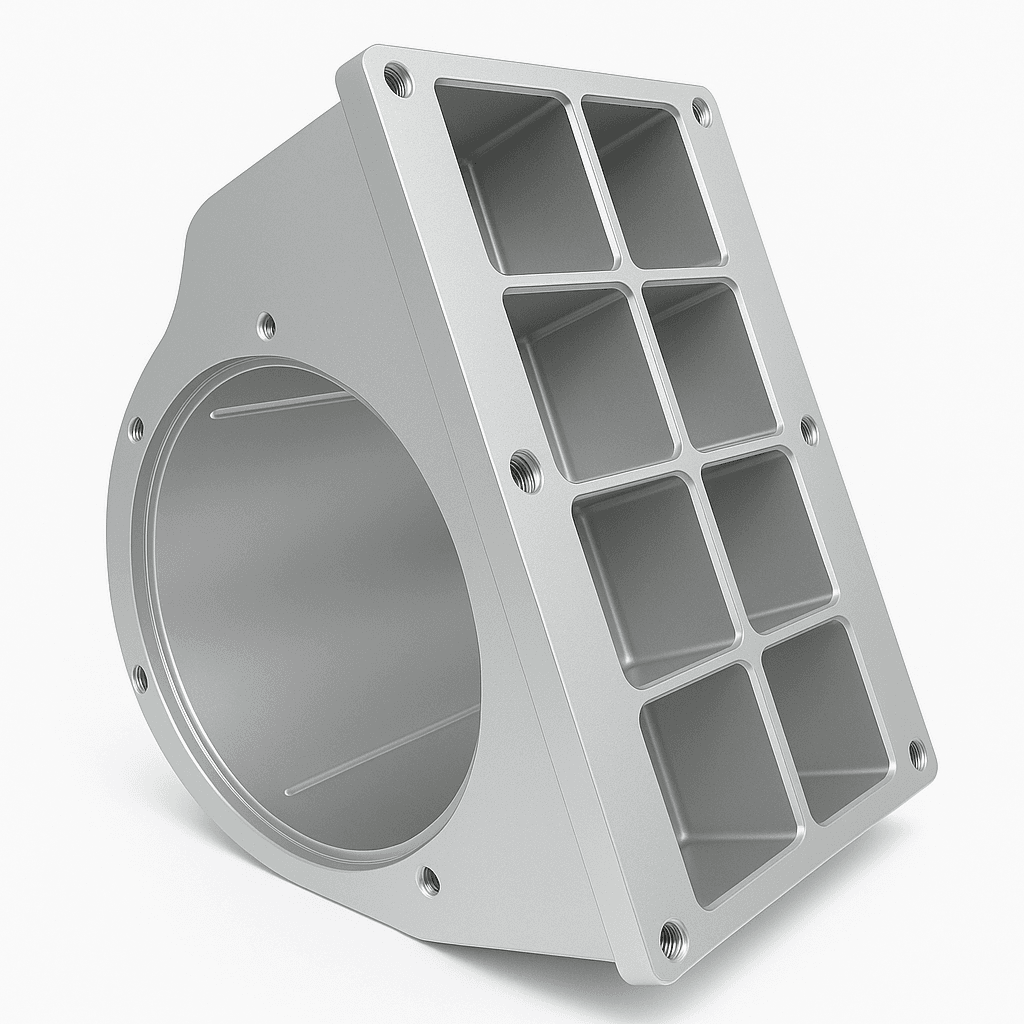What Can You Expect From CNC Machining?
CNC machining is a manufacturing process known for its precision and versatility, where computer-controlled machines shape custom-designed parts out of solid material. It excels in producing complex three-dimensional parts with a high degree of accuracy and repeatability. From prototypes to final products, CNC machining is integral for creating detailed and durable components across various industries.
CNC machining offers unparalleled accuracy, ensuring components meet exact specifications with tight tolerances.
Speed
With automated processes and reduced need for manual intervention, CNC machining delivers parts rapidly, shortening production times.
Versatility
The adaptability of CNC machines allows for the production of complex shapes and designs that would be difficult or impossible to achieve with manual machining.
Consistency
The CNC process guarantees that each part is a perfect match to the last, ensuring consistent quality for high-volume production runs.
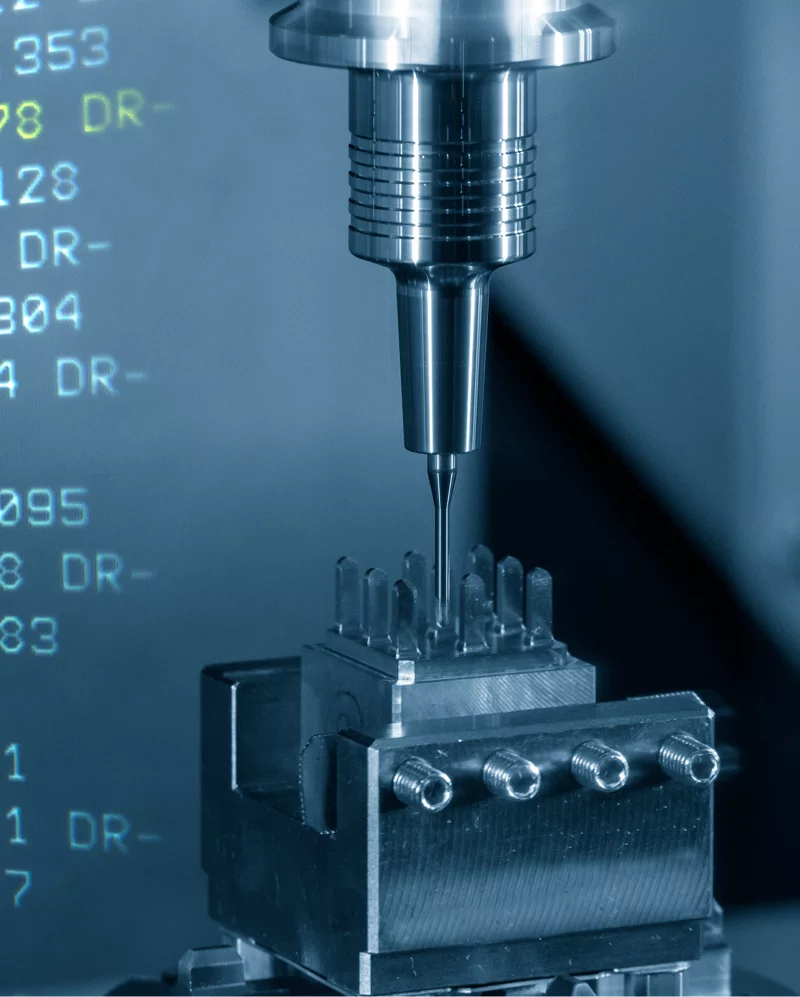
Advantages of CNC Machining
CNC machining stands out for its precision, efficiency, and consistency, making it a go-to for intricate designs that require exactitude. The automation of CNC machinery reduces human error and enhances safety while allowing for complex cuts and shapes that manual processes can’t replicate. The technology also enables rapid prototyping and high-speed production, which can significantly reduce the time to market for new products.
When to Use CNC Machining
CNC machining is ideal for projects requiring detailed, precise geometries and high-quality finishes. It is particularly suited to producing custom parts, one-offs, or small to medium production runs where complexity and tight tolerances are non-negotiable. Additionally, CNC is the preferred method when the repeatability of parts is crucial, such as in the automotive or aerospace industries.
MATERIALS
Materials Compatible With CNC Machining
CNC machines exhibit remarkable versatility in the range of materials they can work with, including metals like aluminum and steel, plastics such as ABS and polycarbonate, and even composites. This flexibility allows for a broad application across various industries, from electronics to medical devices, where material properties are pivotal to product functionality.
Selecting Materials
We offer CNC machining in a wide range of materials to meet your product requirements.
-
Aluminum:
Lightweight and corrosion-resistant, ideal for aerospace and automotive parts.
-
Stainless Steel:
Highly durable and resistant to corrosion, used in medical devices and kitchen equipment.
-
Brass:
Excellent machinability, commonly used for plumbing fixtures and decorative items.
-
Copper:
Known for its thermal and electrical conductivity, used in electrical components.
-
Titanium:
Strong and lightweight, favored in aerospace and medical industries.
-
Magnesium:
The lightest structural metal, used in automotive and aerospace applications for weight reduction.
-
Zinc:
Good for casting and strong impact resistance, used in automotive and industrial machinery.
-
Nickel:
High resistance to heat and corrosion, used in high-performance and high-temperature applications.
-
Mild Steel:
Highly weldable and durable, ideal for infrastructure and automotive parts due to its toughness and affordability.
-
Alloy Steel:
Enhanced with elements like chromium and nickel for better strength and heat resistance, used in high-stress applications like gears and axles.
-
Tool Steel:
Characterized by its hardness and resistance to abrasion, it’s typically used in the manufacturing of cutting and machining tools.
-
Inconel:
Known for its superb heat and corrosion resistance, making it perfect for aerospace and marine environments where extreme conditions prevail.
-
ABS (Acrylonitrile Butadiene Styrene):
Known for its toughness and impact resistance, ideal for automotive, consumer goods, and enclosures for electronic devices.
-
Nylon:
Offers excellent wear resistance and high mechanical strength, commonly used for mechanical components such as gears and bearings.
-
Polycarbonate:
Extremely durable and transparent, used in applications requiring high impact resistance and optical clarity, like protective covers and eyewear.
-
POM (Polyoxymethylene or Acetal):
High stiffness, low friction, and excellent dimensional stability, suitable for precision parts in mechanical assemblies.
-
PTFE (Polytetrafluoroethylene or Teflon):
Exceptionally chemically resistant and can withstand high temperatures, often used in applications involving corrosive chemicals or extreme conditions.
-
PEEK (Polyether Ether Ketone):
Offers a unique combination of high heat resistance, mechanical strength, and chemical resistance, used in aerospace, automotive, and medical industries.
-
PVC (Polyvinyl Chloride):
Good mechanical strength and resistance to chemicals and weathering, used in construction and medical devices.
-
HDPE (High-Density Polyethylene):
Known for its high strength-to-density ratio, used in making fuel tanks, water pipes, and plastic lumber.
CNC Milling vs CNC Turning
CNC milling and turning are two methods used to remove material from a workpiece to create a desired shape. Milling utilizes a rotating cutting tool to execute complex cuts, drill holes, and create varying shapes and sizes. In contrast, CNC turning involves a stationary cutting tool and a rotating workpiece to produce cylindrical parts. The choice between milling and turning depends on the specifics of the part being produced, with each method offering its own unique capabilities.
Achieve the right texture with surface finishing.
We offer a full array of surface finishing treatments so that your parts look, feel, and perform like they are designed to.
Unfinished (as-machined)
The surface is left in its natural state after machining, showing tool marks and potentially minor imperfections, suitable for applications where surface finish is not critical.
Smooth Machining
Using extra passes with finer tools, this finish reduces tool marks for a cleaner appearance and slightly higher precision, commonly used in visible or semi-visible components.
Fine Machining
Achieves a finer finish by using very fine tools and slower feed rates, creating a surface that’s visually appealing and smooth, ideal for parts needing precise fits and tolerances.
Polished
Machined part is buffed to a mirror-like finish, significantly reducing surface roughness and enhancing corrosion resistance, perfect for aesthetic applications in visible parts.
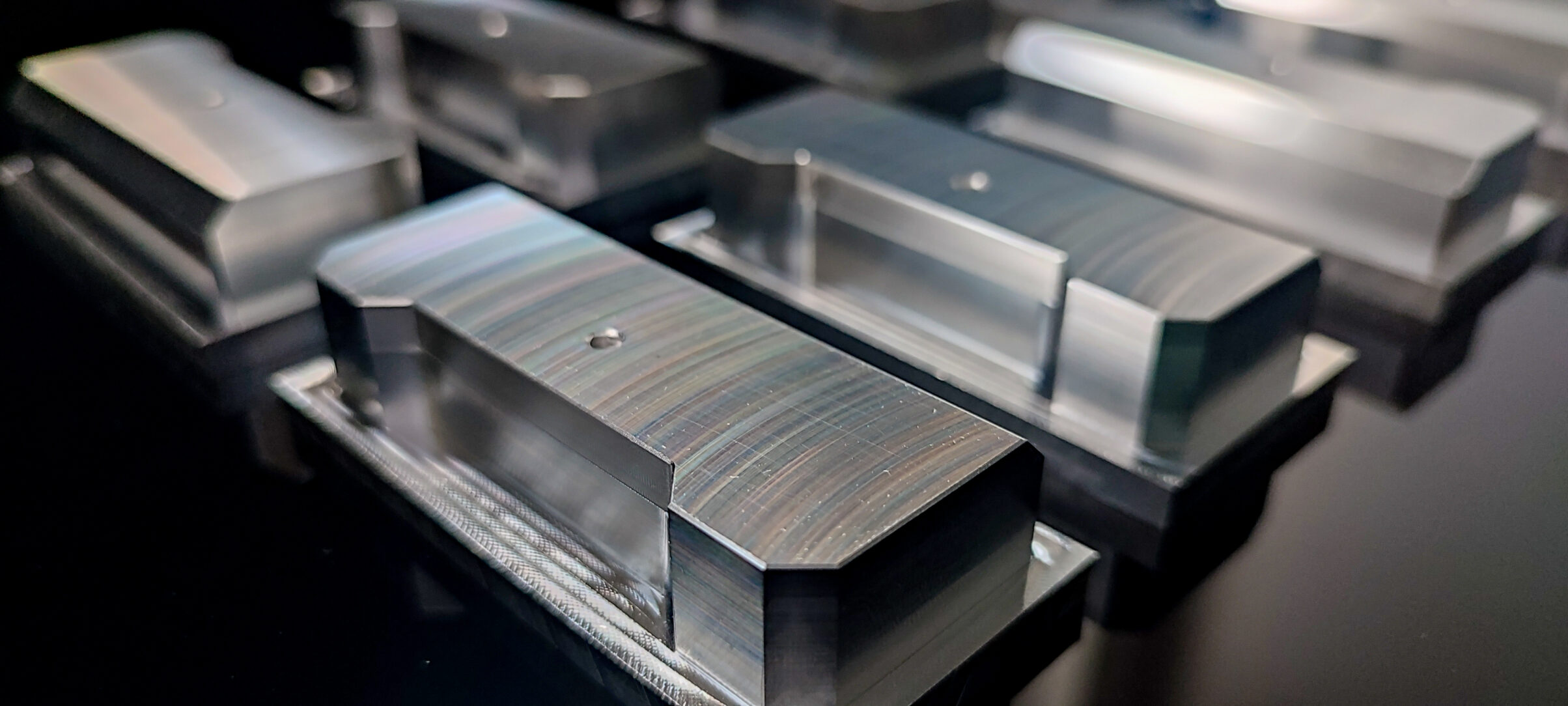
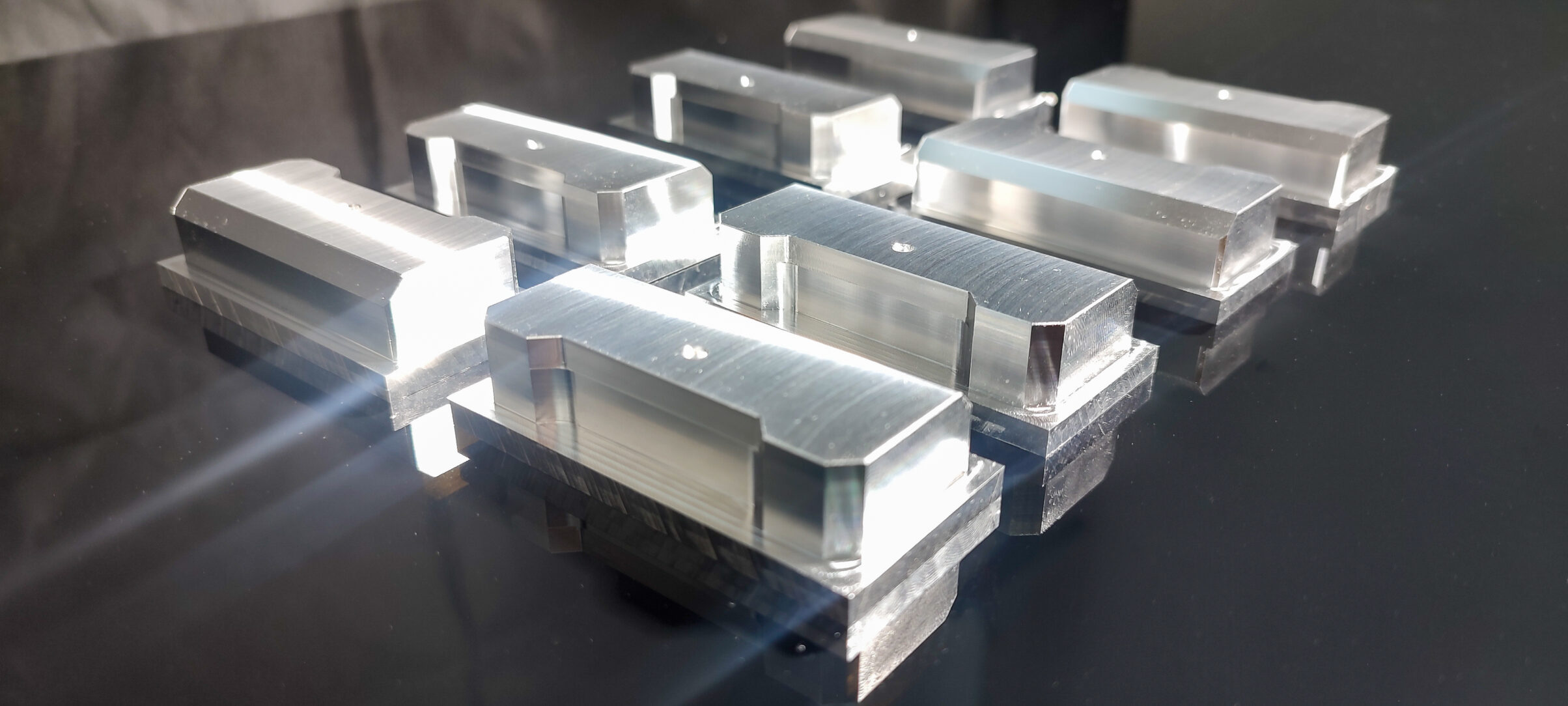
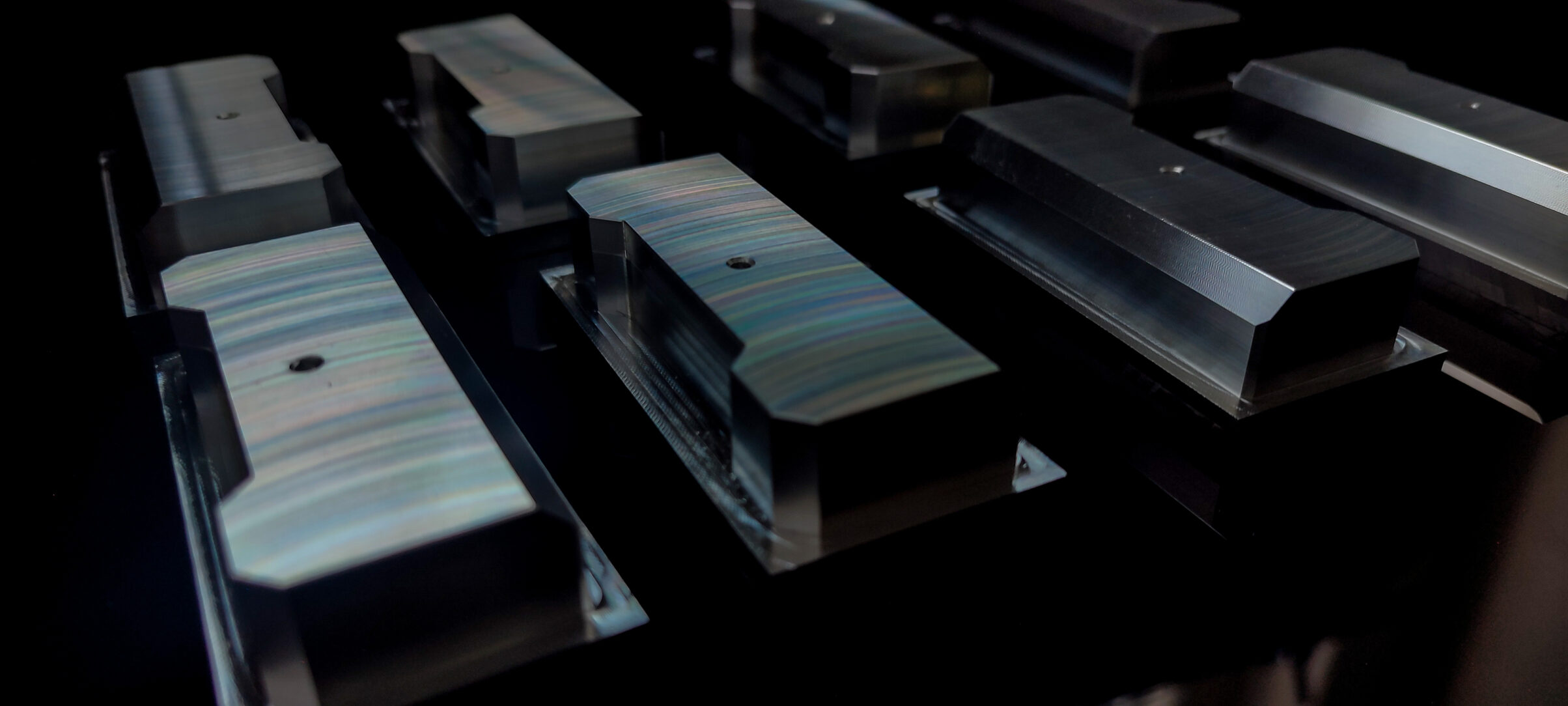
Get a Free CNC Machining Quote
Tell us a bit about your needs and a knowledgeable product specialist will be in touch to gather any additional info and provide you with a secure file upload link to share your project files so we can get you an accurate quote.
